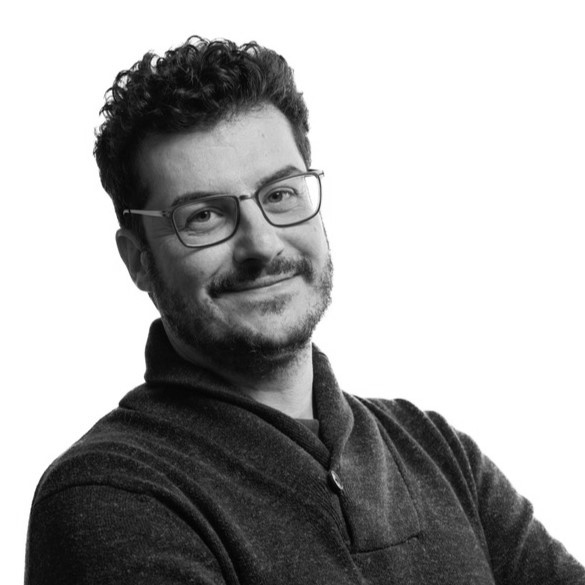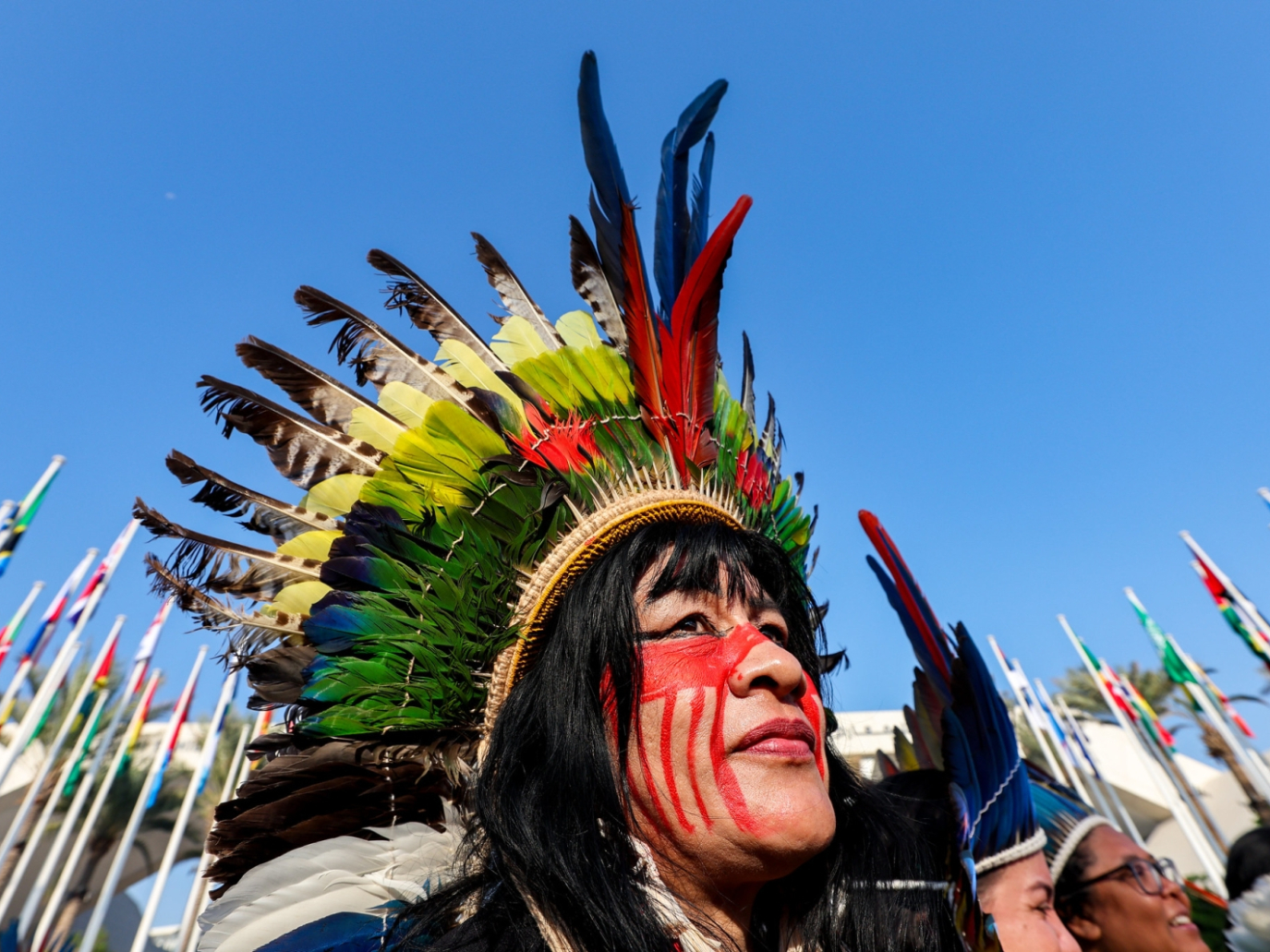*from Dubai
Ecological transition, decarbonization, forest protection, carbon markets. For civil society, these key elements in the fight against climate change often have a double face. Where there is an opportunity to create a new low-emission, climate-resilient economy, there is a risk of undermining rights, and not providing a fair transition for those who will be most affected at work (just think about what the gradual stop to fossil fuels means for millions of people), not giving fair representation to all communities, especially minorities and informal communities.
Without clear references to human rights in climate finance there is a risk that renewable plants, mines for transition minerals, protected areas, and reduced deforestation will lead to huge problems.
And just as it is the most vulnerable countries, minorities, and indigenous communities that are the most impacted by the effects of climate change, so too are they at risk of being impacted by the low-carbon shift that is being imparted to the economy, in a dichotomous clash that is only seemingly insurmountable. Still, all of this has a name: climate racism.
The topic of human rights, and climate finance (which here at COP28 found space only with the approval of the Loss and Damage Fund) for all and everyone, equal access to technology, and representation in the processes of minorities and indigenous peoples remains a secondary issue, often opposed by the most authoritarian states, especially in Asia and Africa, but little supported by the industrialized world as well.
Renewable Matter discussed climate racism with Ronaldo dos Santos, quilombola secretary at Brazil's Ministry of Racial Equality, whose government will host COP30 in 2025 in Belém, Brazil.
"Environmental racism is an issue that needs to gain traction in the whole climate debate," began Dos Santos, sitting in the Renewable Matter office here at COP. "First of all, because in the development patterns of economic cycles that occur across the planet, it is always present. The risk of destroying territories, violating peoples' rights, of racialization remains widespread even with the ecological transition. It affects men and women and communities like mine, the Quilombolas. Multinational corporations come to the territories without taking into account the affected group when implementing a project. At the same time, climate disasters affect precisely the same communities, which, however, traditionally and historically conserve biomes and natural resources as best they can, making a real contribution to the climate challenge."
Brazil has been at the forefront of the climate debate for years. After a brief interlude with Climate change deniar Jair Bolsonaro, it has returned with President Lula to seek a global role, on the one hand halting deforestation and on the other bringing the rights of communities and indigenous peoples to the center of the debate, both in its own country and in international forums such as the UN Framework Convention on Climate Change and the UN biodiversity negotiations, as well as at the G20.
When I ask him to tell us about the challenges between agribusiness, extractivism, and green economy for the Quilombola minority, his face lights up. "Quilombola communities are a segment of the Brazilian population spread throughout Latin America under other designations." Quilombos were the first rural settlements of African slaves in Brazil who were fleeing from plantations until the abolition of slavery in 1888: communities that are still very poor and often excluded from the participation processes linked to economic development.
"These are communities to which, as a rule, the right to land is not guaranteed, either because in various countries there is no specific legislation in place to guarantee it, or because in others, as in the case of Brazil, such legislation exists yet is very difficult to implement because of the disputes that arise. If you don't have property title you cannot claim rights."
Land dispute is one of the fiercest in these territories. Spaces in which, therefore, there is a process of deterritorialization, with people coming from outside and forcing themeselves into the countryside with threats, persecution, and murder.
While many of the economic projects are related to agribusiness, there are also mining, logging, and hydropower. "There needs to be an economic development project in the country that does not perceive communities like ours as a problem but, on the contrary, as a player to involve and that can bring added value."
Be it multilateral processes such as the UN or private initiatives by multinational corporations, environmental or climate racism is rarely discussed, perpetrating bias whereby scientists are often white males, and it is the industrialized world teaching and telling what to do.
"We need environmental racism to be incorporated more strongly than has been mentioned so far," Dos Santos explains seriously. "It needs to be treated by global leaders, by business, by the whole COP debate as a priority concern. You cannot address environmental issues without addressing the issue of environmental racism, especially if we are talking about Just Transition."
On the priorities on the agenda of issues to be discussed, Dos Santos has no doubts. "Land regularization. It is not possible to talk about environmental conservation and climate justice without thinking about the regularization of land ownership of indigenous or minority communities that are not formally titled to their territory." For example, when the Quilombolas formed their communities, they did so informally. So, when a company comes to their territories to set up a mine, bioenergy crop, or whatever, the Quilombolas have no legal title to object. "A problem common to many native peoples, thus limiting the ability to preserve forests, a source of carbon absorption."
There is no shortage of networks fighting for this right, which must become a global priority, the Brazilian representative argues. "There is not yet a global movement representing this set of interests. However, there are many movements that continuously exchange information. For example, the network of indigenous communities in Latin America, CONAQ in Brazil, which is the National Coordination of Articulation of Rural Black Communities Quilombola, the PCN in Colombia, which is the process of Black Communities, the APIB, Articulation of Indigenous Peoples of Brazil, who for years have suffered real genocide with the acquiescence of Bolsonaro, but also other peoples of the world.
Even in the legal uncertainty over property ownership, these lands provide irreplaceable environmental services. Yet global investments in the conservation of existing forests and carbon sequestration do not reach them; payment for the exploitation of environmental services is not disbursed to the people. "It must be clear that the development of climate and biodiversity conservation projects must also benefit minorities, even indigenous peoples."
Do you think President Lula will bring attention to this issue at COP30? That is our last question. "Absolutely. And it's important to say that COP30 will take place in November 2025, in the state of Pará, in Belém, in the same year as the 30th anniversary of the first quilombola title in Brazil. So COP30, for us, will celebrate the most important quilombola land titling policy law. We are taking our struggle within the federal government, which will make this issue a relevant point for COP30."
This article is also available in Italian / Questo articolo è disponibile anche in italiano



